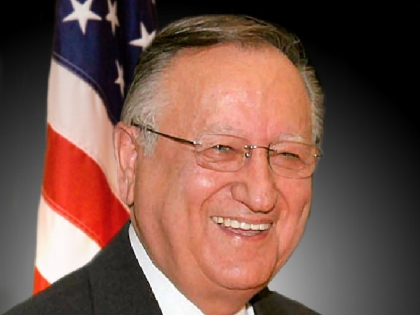
Padavan Unveils Strong Reforms For State Parole System
Frank Padavan
February 4, 2008
New York State Senator Frank Padavan (Queens) and his Senate Majority colleagues today unveiled comprehensive legislation that will strengthen New York State’s Parole Laws by restricting the release of dangerous violent felons. The sweeping legislative package also protects and strengthens victim’s rights and provides for increased transparency in the parole process.
“Recently, there has been an alarming and deeply troubling trend of violent felons being granted parole in our state,” Padavan said. “It’s mind boggling given the success we have had in combating and significantly reducing crime to historic lows in New York City and throughout the state that the Parole Board would soften their standards and increase the granting of parole releases for dangerous and violent felons. We cannot let this disturbing and dangerous trend continue to jeopardize the safety and well being of all New Yorkers.”
Padavan’s call for action on this comprehensive plan to strengthen parole laws in New York comes following the rate of parole releases being granted to violent felons throughout the state. Data from the Division of Parole indicates that A-1 violent felons appearing before the parole board for the first time are being released at a startling 180 percent rate higher than the previous administration. Reappearing felons are being released at a rate 122 percent higher than the previous administration. Last year alone 225 violent felons were granted parole in New York State. 215 of those granted parole last year were convicted murders.
In November 2007, the Spitzer administration tried to negotiate a court settlement, behind closed doors, that would allow new hearings for thousand of inmates who claimed they were denied parole release. Once the negotiations were made public and subsequently faced with public outcry and strong opposition from the Senate Majority, the Spitzer administration ditched their plan.
The Governor’s Proposed Executive Budget for the upcoming fiscal year calls for the expansion of the State’s “compassionate release” policy for inmates. Under the Governor’s proposal, inmates with a “permanent illness” can be released without intensive supervision. Current law states that “terminally ill” inmates can be released and are subject to intensive supervision.
In response to this pattern, Senator Padavan and his Senate Majority colleagues have introduced legislation that will:
• Require at least 3 Parole Board members to conduct parole hearings for inmates convicted of a Class A felony and require a unanimous vote for parole to be granted in these cases. At the present time only a majority vote is required in this instance;
• Mandate that the Division of Parole maintain a listing of inmates and their parole eligibility dates on their website;
• Allow victims who do not choose to receive notice of parole hearings at the time of the inmates conviction to chose to receive one at a later date;
• Establish a mechanism on the Division of Parole website to allow victims of all crimes to register to receive notice when their perpetrator will appear before the Parole Board. The website must also inform them of their rights as victims to make a written or oral statement to the board;
• Require the Division of Parole to provide an annual report to the State Legislature on all parole releases, release rates and other pertinent information; and
• Increase information sharing and communication by mandating that the Division of Parole contact the local District Attorney where the crime was committed, whenever an A-felon or Violent Felony Offender is due for parole.
“This pattern of misguided and senseless action by the Parole Board and the Spitzer administration has eroded laws we adopted with bipartisan support that have protected New Yorkers everywhere from dangerous violent offenders from seeking parole,” Padavan said. “Our legislation sends a message loud and clear to the Spitzer administration and the Parole Board that dangerous felons belong behind bars and out of our communities and away from our neighborhoods.”
Share this Article or Press Release
Newsroom
Go to NewsroomPadavan Celebrates National Estuaries Day At APEC's Little Neck Bay Festival
September 28, 2010

Padavan Celebrates National Estuaries Day At APEC's Little Neck Bay Festival
September 28, 2010

